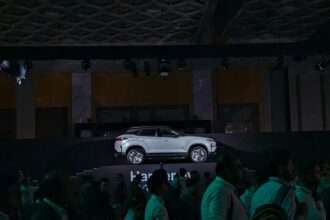Kia and Hyundai, prominent automobile manufacturers, find themselves entangled in a colossal legal battle in the United States, facing a potential loss of a staggering USD 1 billion. The lawsuit stems from an alarming security vulnerability present in numerous Kia and Hyundai vehicles, rendering them susceptible to theft through a simple USB-A cable.
Earlier this year, it was revealed that Kia and Hyundai vehicles equipped with manual or mechanical keys were prone to car theft. Shockingly, a security loophole allowed thieves to exploit this vulnerability using nothing more than a USB-A cable. This technique involved accessing the vehicle’s interior, manipulating the steering column, removing the ignition cylinder, and inserting a USB-A cable to start the engine, even bypassing the immobilizer system. While Kia and Hyundai swiftly addressed the issue by providing a software patch for models with immobilizer chips, cars lacking this feature remained at risk.

The initial alarm regarding the absence of adequate theft prevention measures was raised by a TikTok channel named Kia Boyz, leading to a viral trend that gained widespread attention among various age groups, including teenagers and car thieves. What started as a TikTok challenge quickly transformed into a nationwide concern, affecting Hyundai cars produced between 2015 and 2021 and Kia vehicles manufactured from 2011 to 2021, equipped with a mechanical key.
This vulnerability contradicts the Federal Motor Vehicle Safety Standard 114, which mandates an engine or motor to prevent normal activation without the presence of a key. Earlier settlements saw Kia and Hyundai agreeing to pay USD 145 million to cover losses for 9 million drivers, part of a USD 200 million settlement resulting from a class-action lawsuit. However, a new lawsuit worth USD 1 billion, filed by insurance companies that insured the affected vehicles, now challenges the manufacturers.
South Korean manufacturers attempted to dismiss the lawsuit, arguing that theft is a default liability covered by insurance policies. Nonetheless, a US District Judge, James Selna, rejected these arguments, asserting that the case outlines breaches in warranties, fraud through omission and concealment, and violations of state consumer protection laws by Kia and Hyundai.
This ruling reflects the seriousness of the claims against Kia and Hyundai, underscoring the need for stringent automotive security standards to safeguard consumers against such vulnerabilities. The outcome of this lawsuit could significantly impact the automotive industry’s approach to ensuring robust security measures in vehicles, emphasizing the criticality of protecting consumers’ safety and interests.




